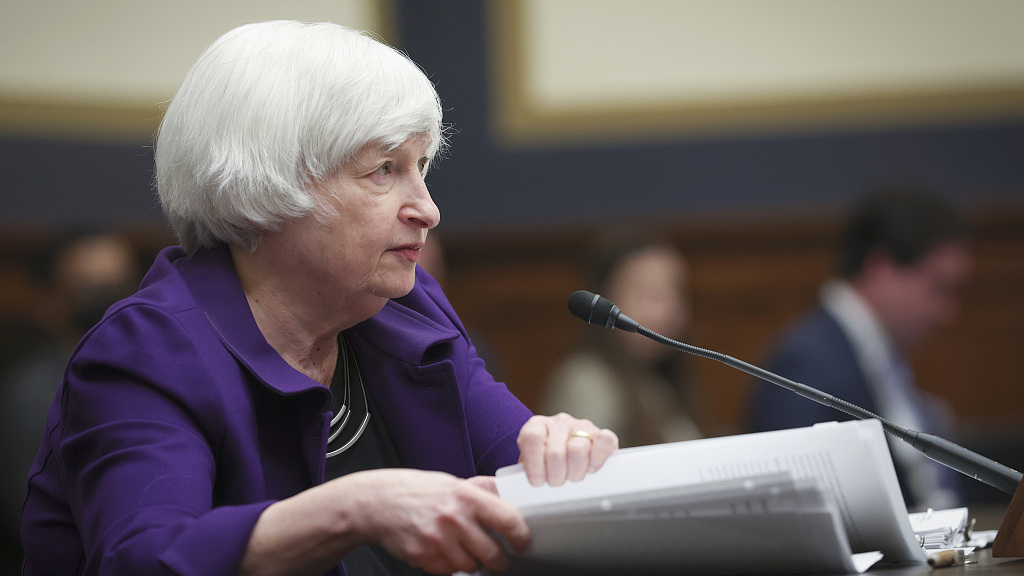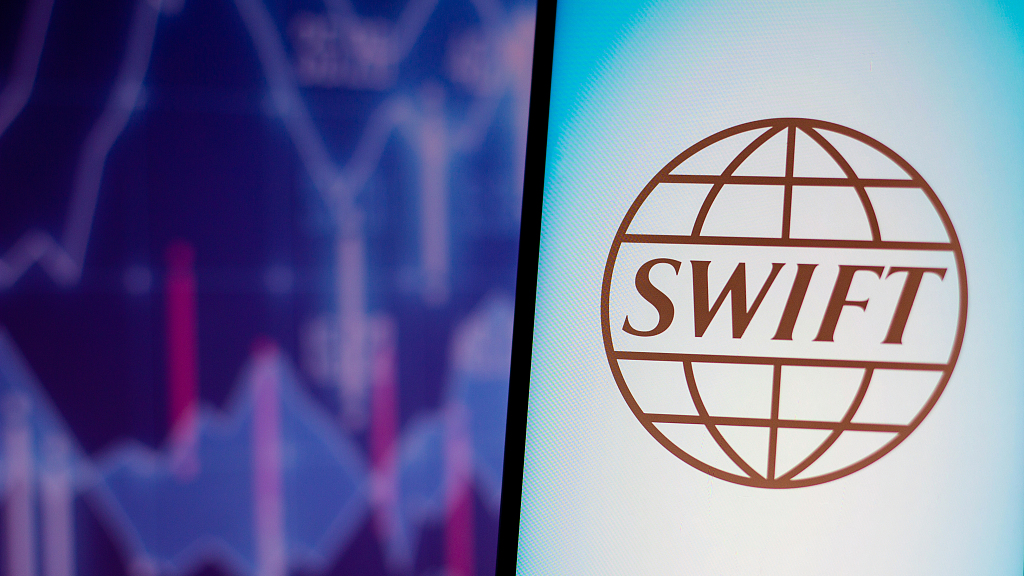
U.S. Treasury Secretary Janet Yellen tells the House Committee on Financial Services that the U.S. will decline to participate in G20 meetings if the Russians attend, Washington, D.C., April 6, 2022. /VCG
U.S. Treasury Secretary Janet Yellen tells the House Committee on Financial Services that the U.S. will decline to participate in G20 meetings if the Russians attend, Washington, D.C., April 6, 2022. /VCG
Editor's note: Daryl Guppy is an international financial technical analysis expert. He has provided weekly Shanghai Index analysis for media for the Chinese mainland for more than a decade. Guppy appears regularly on CNBC Asia and is known as "The Chart Man." He is a national board member of the Australia China Business Council. The article reflects the author's opinions and not necessarily those of CGTN.
The events in Ukraine have unsheathed a range of new weapons that have serious consequences for international business. These weapons include sanctions not just on Russia but effectively on any country that does not abide by the sanction demands made by a bloc of Western countries. There are exceptions made for countries like India, which in itself poses a new set of problems.
Like weapons of mass destruction (WMDs), these economic weapons inflict pain indiscriminately. These new weapons pose a substantial threat to international trade, logistics chains and supply routes. We will look at each one so businesses can start to assess the potential impact on their activities and their trade with China.
First, who has to obey these sanctions? The United States claims they apply to China, and the White House has threatened Beijing with sanctions if the latter buys any oil from Russia.
However, India, a partner in U.S. alliances, is excused from complying with the very same sanctions and will not be punished.
Apparently, India's deals to buy military equipment and oil from Russia do not break the rules and attract no penalty from the United States.
Australia, a willing partner of the United States, has duly followed this double standard, scolding China for not supporting a UN resolution to condemn Russia but making no comment about India following China's lead.
This inconsistency in applying sanctions – special rules for special friends – undermines the very foundation principle of the rules-based global order promoted so loudly by the U.S. and its allies. The rules should apply equally to all.

The SWIFT logo is displayed on a smartphone screen. /VCG
The SWIFT logo is displayed on a smartphone screen. /VCG
The second of these new weapons is the abuse of the Society for Worldwide Interbank Financial Telecommunication (SWIFT) international trade settlement system, which sits at the heart of international trade settlement. The weaponization of SWIFT gathered pace under Former U.S. President Donald Trump, with Iran and later Venezuela excluded from participation. The exclusion of Iran was significant because this was a unilateral decision taken in defiance of the UN.
The UN found Iran compliant with its nuclear commitments, and there was a strong European trade with Iran. Despite this, Trump used SWIFT to threaten parties, not just for the UN-approved business they did with Iran but for any business conducted anywhere in the world that was settled in U.S. dollars using the SWIFT system.
This was a wake-up call for many countries, and work began on developing alternative trade settlement systems. The Europeans initiated the INSTEX system to continue UN-approved legal trade with Iran.
The further weaponization of SWIFT is a third new weapon because it extends extra-territorial reach into the sovereign right of countries to develop alternative trade settlement systems. Countries that are not a party to a dispute that involves the U.S. now have their sovereignty threatened by these secondary SWIFT boycotts and exclusions. These countries cannot pursue their sovereign policies because of U.S. interference in their internal affairs via the corruption of the international trade settlement system.
U.S. Senators have introduced an act that prevents China from using its SWIFT alternative – the Cross Border Interbank Payment System – to conduct financial transactions with Russia. This is an unacceptable attempt at extra-territorial reach.
It undermines the reputation of the U.S. dollar as a safe haven and reserve currency and destroys the moral standing of the U.S. with its oft-repeated claim that it rejects bullying. Applying sanctions to third parties by interfering with their ability to settle trade transactions is nothing short of bullying.
This, coupled with the U.S. tendency to freeze the assets whose possessors it does not like, makes the U.S. a far less secure place because it fails to respect international rules.
The final new weapon is the threat of Russia-like sanctions imposed on China. Some believe that this would be devastating for China's ability to remain a manufacturing superpower. This is perhaps the ultimate hubris that a small group of Western nations brings to their idea of global rules-based order.
China is the world's second-largest economy. The removal of Chinese goods and services from the shelves of Western businesses would be economic suicide. It is fanciful to believe China can be excluded from the global economy.
For the sake of the survival of the global rules-based order, it is essential that these weapons of mass economic destruction be disarmed and neutralized as quickly as possible to avoid inflicting indiscriminate collateral damage.
(If you want to contribute and have specific expertise, please contact us at opinions@cgtn.com. Follow @thouse_opinions on Twitter to discover the latest commentaries on CGTN Opinion Section.)

